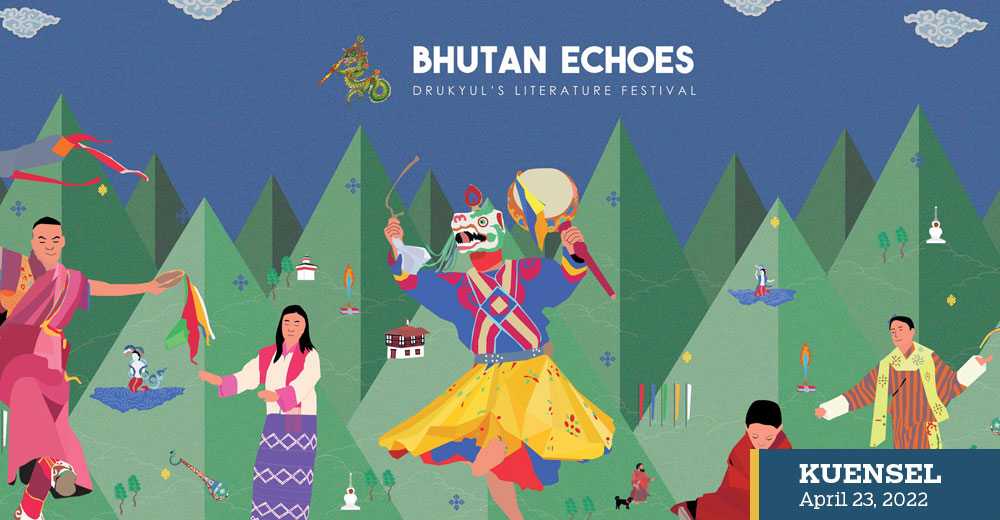Phub Dem
Culture survives, as it evolves. History is more than just names and dates. It concerns ordinary people’s lives and livelihoods.
An hour-long session of Bhutan Echoes saw Dr Francoise Pommaret talk about understanding Bhutan’s history through text and tongues and preserving both written and oral forms of narrative.
A director of research at the National Centre for Scientific Research (CNRS) in France and research adviser at the Institute for Language and Cultural Studies in Bhutan, Francoise Pommaret (PhD) has been in Bhutan for 40 years.
Histories in Bhutan, she said, were written mainly by monks and elites, but with time, there has been a development in history.
She considers the historical novel—A Hero with a Thousand Eyes by Dasho Karma Ura—the best example of oral history. Francoise Pommaret explains how the book describes the tax system in the country then; the economy, land use and their lives, depicting the real lives of ordinary people.
The day also saw various discussions surrounding the progressive change in the country and how the pandemic brought changes in the lives of artists and authors. The first day saw topics such as living mindfully during the pandemic, women in Buddhist traditions, experiences of writing novels during the pandemic, writing debut novels, and the life of Guru Rinpoche.
This year, themed ‘Stories and Ideas for a Changing World’ marks the beginning of the transition to Bhutan Echoes from Mountain Echoes. After a decade, the festival began a new chapter as His Majesty the King renamed the Drukyul’s Literature Festival in 2020 to reflect the Bhutanese people and their experiences accurately.
Although the festival was deferred for the last two years due to pandemics, the Drukyul’s Literature Festival launched Bhutan Echoes, a year-round initiative to nurture literary culture.
Bhutan Echoes has several sessions in dzongkhag with English subtitles to promote the national language.
According to the producer of Bhutan Echo, Kitso Pelmo, this year’s festival marks the turning point as the team had to adopt a new and innovative format closely with readers, writers, thinkers and artists.
She said that the festival was about forging connections and celebrating friendship with India and the two countries’ shared values of art, culture, and literature. She added that the celebration would discuss progressive changes in Bhutan and around the world.
The four-day events contain diverse pre-recorded sessions and have 44 speakers from Bhutan, India, Nepal, the United States, and beyond. There will be some live question-and-answer sessions with the speakers.
Inaugurating the festival, the Chief Royal Patron of the festival, Her Majesty the Queen Mother Dorji Wangmo Wangchuck, said it was a proud moment as the festival was organized and produced by a Bhutanese team.
Her Majesty the Queen Mother co-founded Bhutan’s first literature festival in 2010 as an Indo-Bhutan initiative.
The four-day programme will end on April 25.


